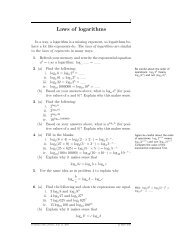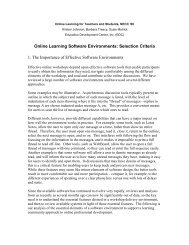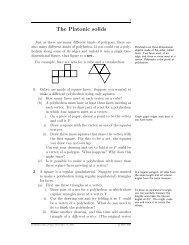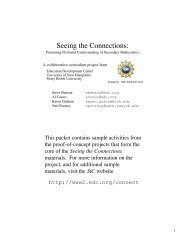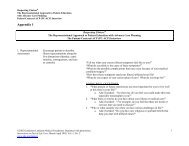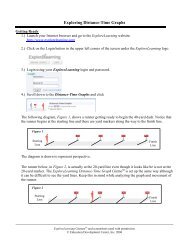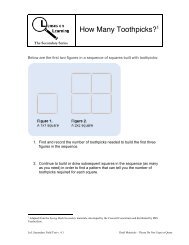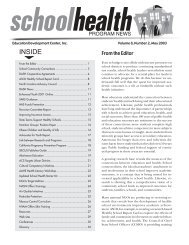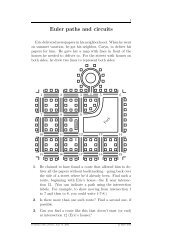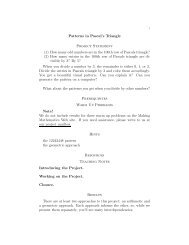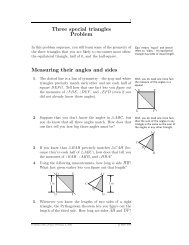It is critical to overcome the digital divide - Education Development ...
It is critical to overcome the digital divide - Education Development ...
It is critical to overcome the digital divide - Education Development ...
You also want an ePaper? Increase the reach of your titles
YUMPU automatically turns print PDFs into web optimized ePapers that Google loves.
Giese studied identity formation in one online environment and argues that computermediatedcommunication produces both a new social environment and new opportunities forpresentation of <strong>the</strong> self (Giese, 1998). Online communities are <strong>the</strong> source of study as a way ofunderstanding <strong>the</strong> development of social identity (Cassell & Tversky, 2005). Youth think of<strong>the</strong>mselves differently when <strong>the</strong>y can interact with technology, use it for communication, andchoose <strong>the</strong>ir own entertainment (Tapscott, 1998). Turkle suggests that <strong>the</strong> fluidity of identitymeans that computers can be part of an extended “cyber self” (Sherry Turkle, 2003). O<strong>the</strong>rsargue that while technology has changed some things, fundamental identity development remains<strong>the</strong> same (Katz, 1997).Th<strong>is</strong> review argues that identity develops interactively, in relation <strong>to</strong> o<strong>the</strong>rs, <strong>to</strong> culture,and <strong>to</strong> outside structures. What does it mean if some youth see technology as an integral part of<strong>the</strong>ir identity, or as an effective <strong>to</strong>ol for communication and work, while o<strong>the</strong>rs see it as a foreignstructure? How do <strong>the</strong> identities of youth who are empowered by technology differ from thosewho are d<strong>is</strong>empowered by that technology?“I have observed my 14-year-old nephew, both f2f and online, in [<strong>the</strong> game]Runescape. <strong>It</strong> <strong>is</strong> amazing <strong>to</strong> me <strong>the</strong> complexity that th<strong>is</strong> child <strong>is</strong> dealing with. Far beyondanything he <strong>is</strong> offered in school. He (and anyone else who pers<strong>is</strong>ts in <strong>the</strong> game over time) <strong>is</strong>oddly motivated <strong>to</strong> practice numerous skills <strong>to</strong> achieve ‘au<strong>to</strong>maticity’ as well as recognizedachievement levels through what seems <strong>to</strong> me tedious repetition; learn and apply a greatmany new concepts and terminology; apply at any given time a multiplicity of dimensions andparameters for complex dec<strong>is</strong>ion-making; and dev<strong>is</strong>e creative strategies involving bothcompetition and collaboration with o<strong>the</strong>rs in real time.”Beverly Hunter, Dialog ParticipantCulture and technologyEven when given access <strong>to</strong> technology, minority communities use <strong>the</strong> Internet less(Stanley, 2003). In a study of poor women who were given home computers and Internet access8



